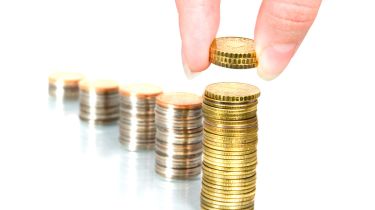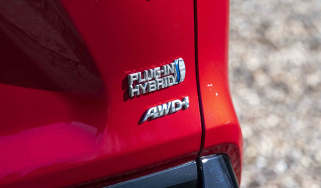What is a balloon payment?
A balloon payment is required to buy a car outright when using car finance, but how do they work? Let’s find out…

If you have looked into buying a new or used car lately, you may have come across the term ‘balloon payment’. This phrase is often used when discussing car financing deals and is particularly common when it comes to purchasing a car with PCP finance.
 Best new car deals 2025: this week’s top car offers
Best new car deals 2025: this week’s top car offers
Simply put, a balloon payment is a lump sum that can be paid at the end of a car finance agreement to purchase the car outright from the dealership, instead of trading into a different vehicle or handing it back and walking away. To fully understand how balloon payments work, we must first get to grips with the basics of PCP financing.
How does a balloon payment work?
In a PCP (Personal Contract Purchase) agreement, car buyers typically pay an initial deposit, followed by monthly payments. However, the attraction of PCP financing is that you are only required to pay for the car's agreed decrease in value over the lease agreement, which is usually around three years, plus interest.
At the end of the PCP contract, the registered keeper will have the option to pay the remaining value of the vehicle to take full ownership. This is known as the balloon payment, and it is calculated at the beginning of your contract based on the length of the PCP contract term and the driver’s expected mileage. These factors can help determine the car's future value at the end of the contract, providing a figure for the balloon payment. It’s often also referred to as a ‘final payment’.
Paying the final balloon payment means you become the owner of the vehicle you have been paying the monthly instalments on for the past few years. However, you also have the option to return your car to the dealership and walk away without paying the balloon payment, or taking out a new PCP deal on a newer model.
Are balloon payments a good idea?
Balloon payments help to bring down your monthly payments on a PCP agreement. They can usually be adjusted along with your initial deposit to either make the monthly costs more affordable or to lower the final price to purchase the vehicle.
It is worth consulting with your car dealer and seeking financial advice before committing to balloon payments and car PCP deals. Being adequately informed can help you avoid any financial problems later on down the line.
If your intention is always to buy the car outright, it makes sense to pay more each month to reduce the balloon payment amount at the end of the deal. However, if you are sure you only want the car for a shorter period of time, keeping the monthly payments lower with a large balloon payment can make sense – as you never intend to pay it anyway.
Car finance made simple
- Used car finance: top tips
- PCP car finance explained
- HP car finance explained
- PCH car finance explained
- PCP vs HP: car finance options
- PCP car finance on used cars
- Car finance negative equity explained
- How to refinance a car
- Getting car finance with bad credit
- What are guarantor loans?
- What is an HPI check?
- What is GAP insurance?
- Van finance explained
- Car finance made simple
Recommended

Best car leasing deals 2025: this week’s top PCH offers

Petrol and diesel car ban relaxed with hybrids permitted beyond 2030

Classic car tax exemption: which historic vehicles qualify?
Most Popular

Omoda E5 targets rivals: now with zero deposit and APR

Ford Puma Gen-E driven: Electric charmer or too little, too late?
Tips & advice

Car dashboard warning lights: what does each symbol mean?

Electric car charging stations: public networks, charger types, apps and maps







